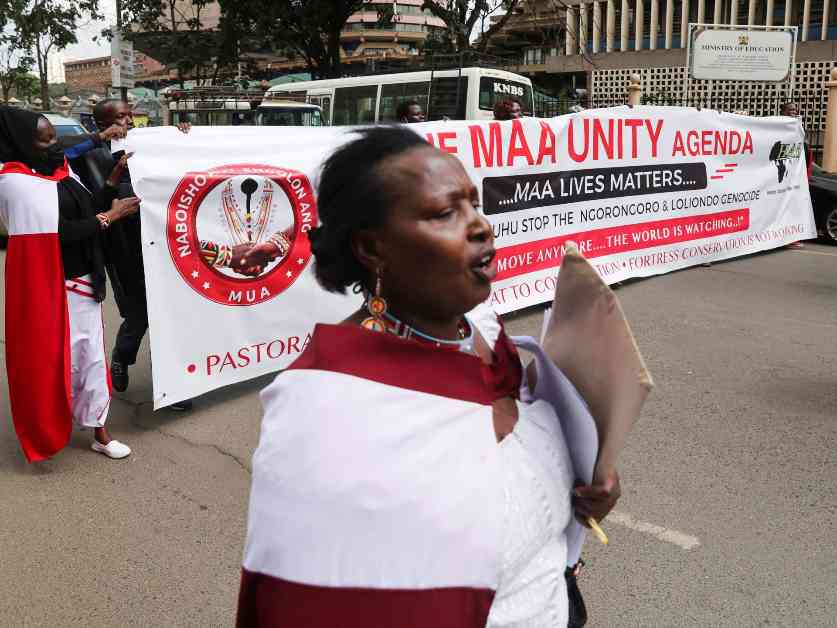Joseph Oleshangay, a 36-year-old human rights lawyer and member of the Indigenous Maasai group in Tanzania, believes that government officials view his community as less than human. The ongoing conflict revolves around the government’s efforts to evict the Maasai from areas surrounding national parks under the guise of wildlife conservation. Despite accusations of abuse, intimidation, and rights violations by park rangers and security forces, the courts have not always ruled in favor of the Maasai.
In response to the lack of legal recourse, community members like Oleshangay have turned to international funders such as the World Bank and the European Union, urging them to withhold funding to pressure the government to address the alleged violence. Recent successes include the World Bank suspending disbursements from a $150 million grant due to concerns about rights abuse allegations. Similarly, the EU removed Tanzania from an 18 million euro conservation grant following internal reviews.
The conflict stems from the government’s desire to expand tourism, a vital source of revenue for Tanzania. However, the Maasai, who have historically faced displacement from their ancestral lands, are now being targeted with unprecedented force. The government justifies the evictions by claiming that the Maasai’s expanding populations encroach on wildlife territory and contribute to human-wildlife conflict.
The Maasai, who have lived in the region for generations, face a dilemma as they are forced to leave their ancestral lands. The government’s actions, including forced evictions and demolition of villages, have led to violent clashes and human rights abuses. Despite promises of voluntary relocation and compensation, many Maasai have been left homeless and displaced to unfamiliar territories hundreds of miles away.
While some individuals like Emmanuel Kituni have adapted to their new circumstances, others find it challenging to leave behind their land, culture, and religious sites. The Maasai argue that the government’s actions not only displace them but also threaten their way of life and heritage. International organizations and human rights groups have condemned the government’s actions, calling for proper resettlement and respect for Indigenous rights.
The conflict highlights the complexities of balancing conservation efforts with the rights of Indigenous communities. As the government continues its push for tourism expansion, activists like Oleshangay remain committed to advocating for the rights of the Maasai. Despite facing threats and challenges, they vow to continue their fight to protect their lands and way of life.



























